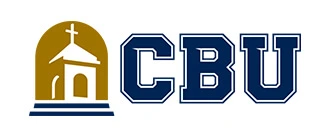If you'd like to expand your knowledge of the education field and use it to advance instruction methods, then California Baptist University's online Master of Science in Education with a specialization in Teaching (Curriculum and Instruction) may be right for you.
<h2 id="section---FrequentlyAskedQuestions">Frequently Asked Questions</h2>
<h3 id="section---WhatKindOfProgramIsIt">What Kind of Program Is It?</h3>
<p>The Master of Science in Education - Teaching, Curriculum and Instruction program at California Baptist University is designed to teach all sorts of educational specialists, from teachers and trainers to school counselors and administrators, how to lead in their respective job positions. With a curriculum that integrates theory, research, and practice, students will have the opportunity to learn how to resolve real-world issues in education and instruction. A few topics the curriculum explores include theories of learning, research methods, curriculum design, and human growth and development, so students are given the chance to understand what kinds of instruction work for which populations. Towards the end of the program, students will have the opportunity to complete a field experience where they will lead a classroom with supervision from a professional.
</p>
<h3 id="section---WhatAreThePrerequisites">What Are the Prerequisites?</h3>
<p>Applicants to the teaching master's program will need a bachelor's degree, a minimum 2.75 GPA, and official transcripts. While a bachelor's degree in any field may be accepted, a background in education may also prove beneficial. Applicants to California Baptist University's master's degree programs should already have a bachelor's degree; some programs may have additional requirements. Some programs may have additional requirements.
</p>
<h3 id="section---WhatAreTheCourseRequirements">What Are the Course Requirements?</h3>
<p>Students are required to complete 30 credits to graduate. The courses in the program are divided between core education topics and teaching specialization topics. Students will be able to choose the courses in the specialization area as long as the courses amount to 15 credits.
</p>
<p><u>Core Courses (15 credits)</u>
</p>
<p />
<table border="1"><tr><th>Course Code</th><th>Course Title</th></tr>
<tr><td>EDU 501</td><td>Leadership, Worldviews, and Contemporary Issues</td></tr>
<tr><td>EDU 521</td><td>Theories of Learning and Teaching</td></tr>
<tr><td>EDU 522</td><td>Curriculum Theory and Development</td></tr>
<tr><td>EDU 525</td><td>Survey of Educational Research</td></tr>
<tr><td>EDU 534</td><td>International and Comparative Education</td></tr>
</table><p><u>Teaching Specialization Courses (15 credits)</u>
</p>
<p />
<table border="1"><tr><th>Course Code</th><th>Course Title</th></tr>
</table><p />
<table border="1"><tr><th>Choose from the following:</th><th /></tr>
<tr><td>EDL 530</td><td>Introduction to Educational Leadership</td></tr>
<tr><td>EDU 505</td><td>Elementary Curriculum and Instruction: Teaching Math and Science</td></tr>
<tr><td>EDU 512</td><td>Teaching Language Arts and Social Studies</td></tr>
<tr><td>EDU 514</td><td>Secondary Methods</td></tr>
<tr><td>EDU 515</td><td>Reading and Writing in the Content Areas</td></tr>
<tr><td>EDU 516</td><td>Teaching Reading and Phonics</td></tr>
<tr><td>EDU 518</td><td>Classroom Management and Discipline</td></tr>
<tr><td>EDU 519</td><td>Subject Area Specialization</td></tr>
<tr><td>EDU 541</td><td>The Exceptional Child</td></tr>
<tr><td>ETC 505</td><td>Educational Computing</td></tr>
<tr><td>GRS 510</td><td>Induction and Reflective Coaching for Teaching I</td></tr>
<tr><td>GRS 511</td><td>Induction and Reflective Coaching for Teaching II</td></tr>
</table><h3 id="section---WhatCouldIDoAfterIGraduate">What Could I Do After I Graduate?</h3>
<h4 id="section---CareerOpportunities">Career Opportunities</h4>
<p>Depending on each graduate's career and educational background, the master's education program could prepare graduates to pursue jobs in teaching, school counseling, and school administration, to name a few. Graduates could teach middle schoolers, work as assistant principals or principals, or design the schools' curriculum. A few possible careers include:
</p>
<ul><li>Middle school teacher
</li><li>High school teacher
</li><li>Instructional coordinator
</li><li>Elementary, middle, or high school principal
</li></ul><h4 id="section---AdvancedDegrees">Advanced Degrees</h4>
<p>An advanced degree may be a suitable option for some graduates, depending on their goals. For example, after completing a master's program, graduates could pursue a doctorate in education or a similar field. A doctorate could allow them to teach in universities and conduct original research, which could prove beneficial to helping improve educational instruction and design. A doctoral degree could also lead to higher job positions, such as a dean or provost at a college.
</p>
<ul><li>Doctor of Education
</li><li>Ph.D. in Education
</li><li>Ph.D. in Educational Administration
</li><li>Ph.D. in Curriculum and Learning Design</li></ul>


.svg)


